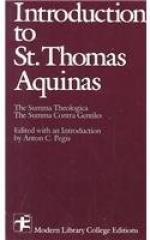
|
| Name: _________________________ | Period: ___________________ |
This test consists of 15 multiple choice questions and 5 short answer questions.
Multiple Choice Questions
1. How many major thinkers other than Aquinas are most frequently named by the author?
(a) Three.
(b) Five.
(c) Four.
(d) Two.
2. How was Aquinas able to write this work?
(a) When he was ill and bedridden.
(b) Through tremendous education and prepatory work.
(c) Through the tremendous help of others.
(d) Over the course of a few tedious months.
3. Angels are often images that represent what?
(a) Abstract concepts.
(b) Individuals.
(c) Humanity.
(d) God.
4. Whenever you act in accordance with your own truth and values, then your behavior is what?
(a) Beneficial only to oneself.
(b) Unusual.
(c) Not in accordance with God's will.
(d) In unity with your essence.
5. Aquinas did not have the advantage of what?
(a) Thinkers.
(b) An education.
(c) Contemporary neuroscience.
(d) Scripture.
6. Aquinas' work was severely challenged by what?
(a) The powerful Greek philosophy of the time.
(b) The powerful Catholic philosophy of the time.
(c) The powerful Arabian philosophy of the time.
(d) The powerful Israeli philosophy of the time.
7. What does Aquinas mean by truth that is immutable?
(a) It can be changed.
(b) It must be changed in some circumstances.
(c) It changes often.
(d) It does not and cannot be changed.
8. What is equally much an element of soul, and in this manner the life-giving breath of God is included?
(a) Angels.
(b) Creation.
(c) The life force.
(d) Humanity.
9. When was Summa Theologica written?
(a) The early 1200 AD/CE.
(b) The late 1200 AD/CE.
(c) The late 1100 AD/CE.
(d) The early 1100 AD/CE.
10. According to Aquinas, Aristotle says that the soul is only separable from the body inasmuch as what?
(a) The separation of mind and body at death.
(b) God wants it to be.
(c) Thoughts and practices are.
(d) One believes it to be.
11. The idea of spontaneous generation has been extended to who?
(a) Satan.
(b) God.
(c) Mankind.
(d) Angels.
12. What location of truth does the author question?
(a) Whether truth resides only in the intellect.
(b) Whether truth resides in God.
(c) Whether there is truth in heaven.
(d) Whether man can be truthful.
13. Damascene was later canonized as what?
(a) Both a healer and a thinker.
(b) Both a healer and teacher.
(c) Both a priest and rabbi.
(d) Both a thinker and teacher.
14. What is entropy, according to Aquinas?
(a) The Creator can reduce a being to nothing.
(b) Disorder.
(c) The loss of information.
(d) Order.
15. Does truth only exist in the intellect?
(a) No.
(b) Most likely.
(c) Yes.
(d) Probably.
Short Answer Questions
1. Does truth exist in the intellect?
2. Who had a Christian best friend for many years?
3. Aquinas then broaches the matter of what substances?
4. How is power twofold?
5. Who has written the Introduction?
|
This section contains 443 words (approx. 2 pages at 300 words per page) |

|




